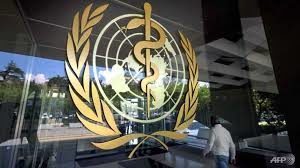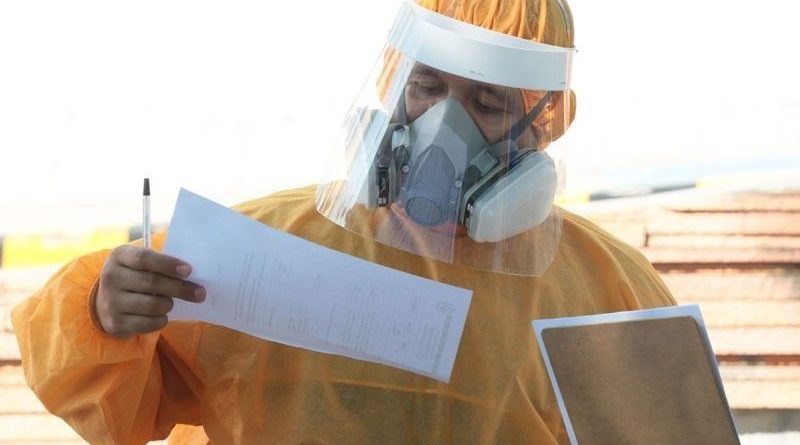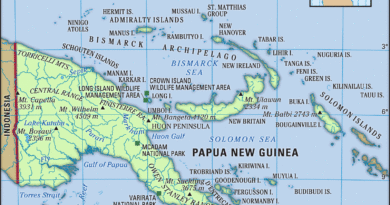COVID-19 PANDEMIC: WHO halts malaria, HIV drugs in COVID trials
“The 2019 Plague” Day 220
.
.

GENEVA – The World Health Organization (WHO) said on Saturday that it was discontinuing its trials of the malaria drug hydroxychloroquine, and combination HIV drug lopinavir/ritonavir, in hospitalized patients with coronavirus disease 2019 or COVID-19 after the drugs failed to reduce mortality.
Following the WHO announcement, the Department of Health (DOH) said yesterday it will be stopping the use of lopinavir and ritonavir among hospitalized COVID-19 patients.
The setback came as the WHO also reported more than 200,000 new cases globally of the disease for the first time in a single day. The United States accounted for 53,213 of the total 212,326 new cases recorded on Friday, the WHO said.
The United Nations health agency accepted the recommendation from the Solidarity Trial’s International Steering Committee to discontinue the trial’s hydroxychloroquine and lopinavir/ritonavir arms. The Solidarity Trial was established by the WHO to find an effective COVID-19 treatment for hospitalized patients.
“These interim trial results show that hydroxychloroquine and lopinavir/ritonavir produce little or no reduction in the mortality of hospitalized COVID-19 patients when compared to standard of care. Solidarity trial investigators will interrupt the trials with immediate effect,” WHO said in a statement, referring to large multi-country trials that the agency is leading.
WHO said the decision does not affect other studies where those drugs are used for non-hospitalized patients or as a prophylaxis.
Another branch of the WHO-led trial is looking at the potential effect of Gilead’s antiviral drug remdesivir on COVID-19. The European Commission on Friday gave remdesivir conditional approval for use after being shown to shorten hospital recovery times.
The solidarity trial started out with five branches looking at possible treatment approaches to COVID-19: standard care; remdesivir; hydroxychloroquine; lopinavir/ritonavir; and lopanivir/ritonavir combined with interferon.
WHO director general Tedros Adhanom Ghebreyesus told reporters on Friday that nearly 5,500 patients in 39 countries had been recruited so far into its clinical trials and that interim results were expected within two weeks.
Some 18 experimental COVID-19 vaccines are being tested on humans among nearly 150 treatments under development.
Mike Ryan, WHO’s top emergencies expert, said on Friday that it would be unwise to predict when a vaccine could be ready. While a vaccine candidate might show its effectiveness by year’s end, the question was how soon it could then be mass-produced, he said.
DOH Undersecretary and spokesperson Maria Rosario Vergeire said the DOH will be stopping the use of lopinavir and ritonavir among hospitalized patients based on the recent evidence and recommendations from experts.
The trial of hydroxychloroquine for COVID-19 patients was already discontinued early on when the evidence for this came out.
“Complete treatment of those who have started, with an option to stop if the patient prefers not to continue,” Vergeire said. “We will have remdesivir plus interferon as the new regimen, vs. remdesivir alone, vs. interferon alone and standard of care once shipment of interferon arrives.”


.
Convalescent plasma therapy
The Department of Science and Technology-Philippine Council for Health Research and Development (DOST-PCHRD) and the University of the Philippines-Philippine General Hospital (UP-PGH) are undertaking a project on convalescent plasma as adjunctive therapy for patients infected with COVID-19.
The project seeks to evaluate the efficacy and safety of convalescent plasma transfusion as adjunctive therapy to prevent disease progression among patients, the DOST-PCHRD said in a recent statement.
Convalescent plasma will be taken from the blood of those who recovered from the infection and transfused into patients critically or severely ill.
“The Palace welcomes the announcement of Department of Science and Technology Secretary Fortunato dela Peña on the start of the government-funded study looking (into) the use of convalescent blood plasma as one of the modes of therapy for COVID-19,” presidential spokesman Harry Roque Jr. said in a statement last Saturday.
“We hope this study will yield positive results and be our country’s contribution to the global effort to develop (a) COVID-19 treatment,” he added.
DOST has said the project would help reduce the COVID-19 mortality rate if it proves to be successful. PCHRD and UP-PGH started calling for blood donations from COVID-19 survivors last April. Alexis Romero
Pia Lee Brago – The Philippine Star


SIGN UP TO RECEIVE OUR EMAIL
.
The most important news of the day about the ASEAN Countries and the world in one email: [email protected]
7.6.2020











